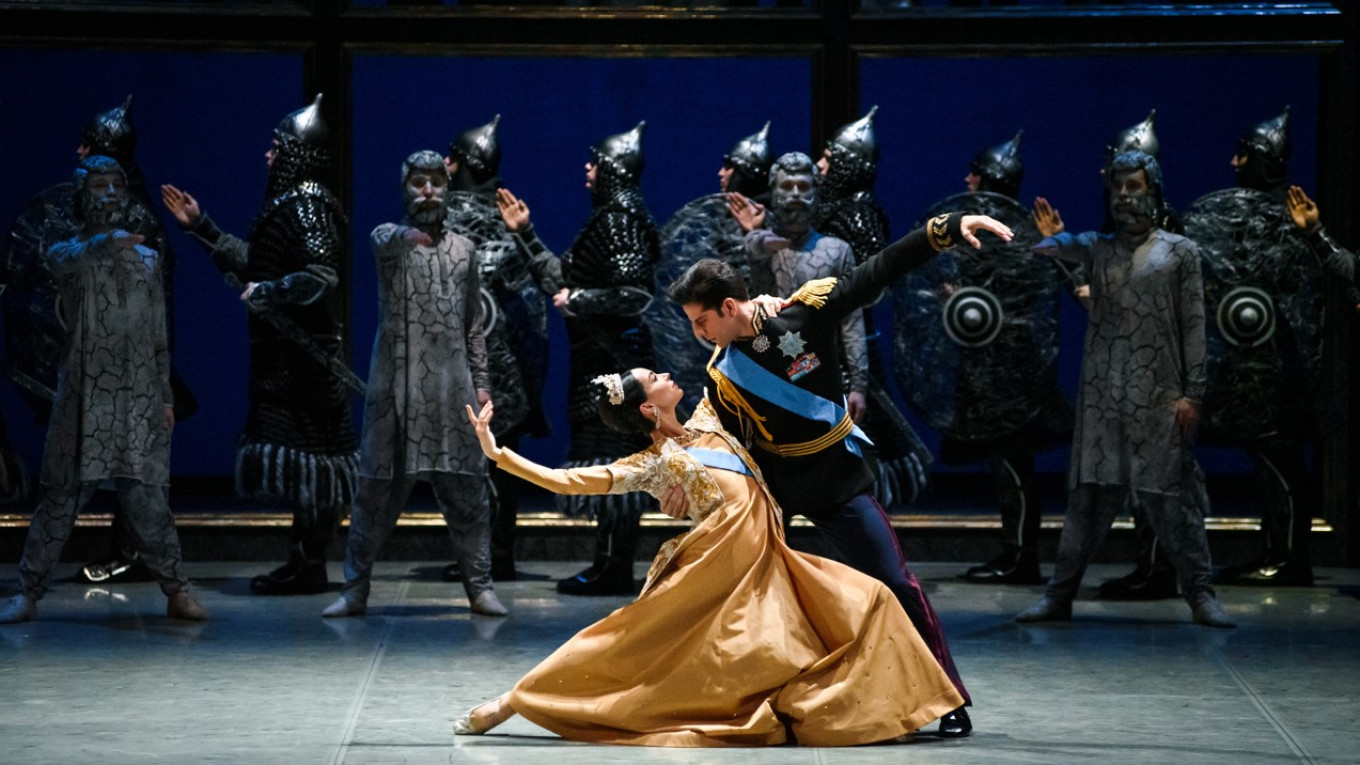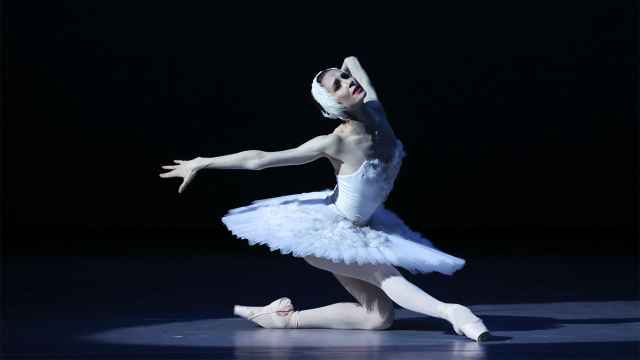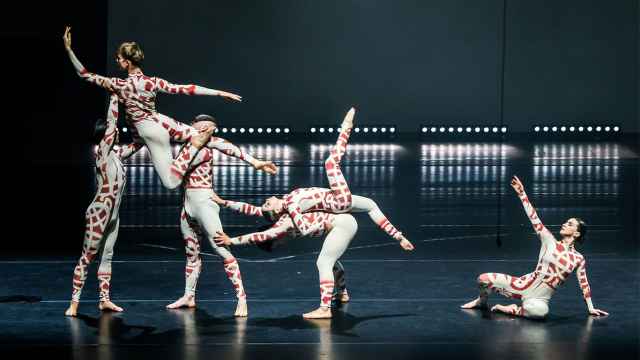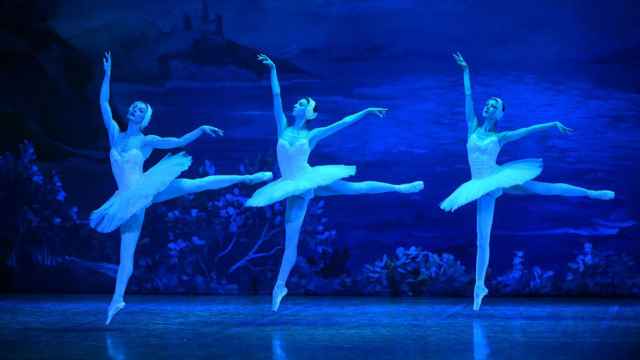Context. Diana Vishneva, a festival of international contemporary choreography, kicks off on Sunday, bringing together ground-breaking choreography from Spain, Estonia and Russia and showcasing an extraordinary premiere inspired by Farah Pahlavi, the widowed empress of Iran.
Making room for new Russian dance
Vishneva, the festival’s artistic director, would like to firmly establish Russian choreography in the world of contemporary dance. As more Russian choreographers are making their name in modern dance, Vishneva is relentless in her efforts to make sure the festival is an integral part of the process.
Vishneva was first introduced to contemporary dance in 1994 when she took both the Grand Prix and the Gold Medal at the prestigious Prix de Lausanne international ballet competition.
She was 17, and the contest marked a turning point for this aspiring young dancer, who would eventually share her time between St. Petersburg and New York as a principal dancer at both the Mariinsky Theater and the American Ballet Theater.
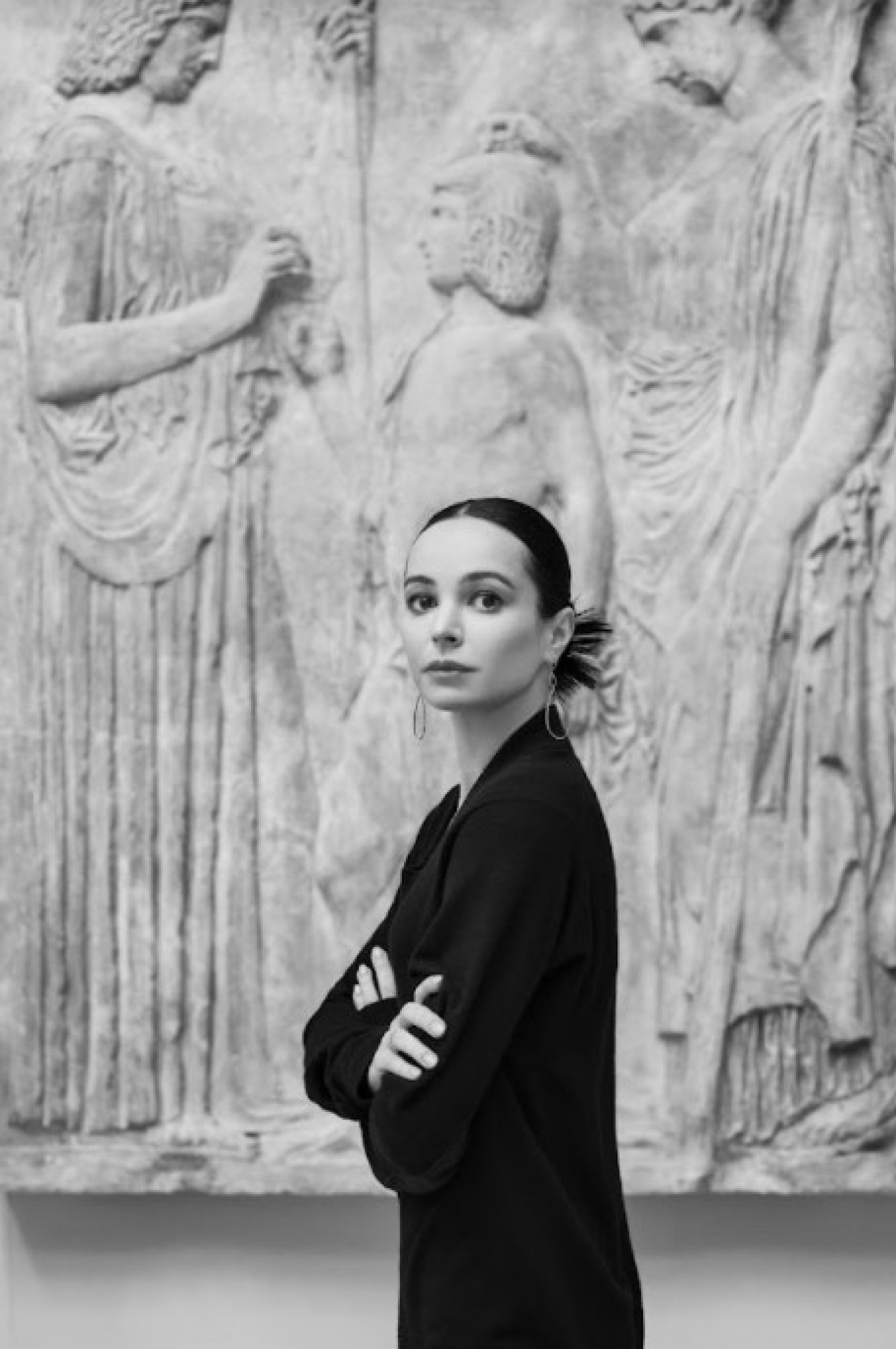
“I returned home [from Lausanne] a different person,” the dancer said in an interview with The Moscow Times. “In the West I felt the spirit of freedom and learned a whole new attitude to dance. I knew then, at the age of 17, that I wanted to follow that path, however difficult and long it might be.”
“I was lucky enough to join the Mariinsky Theater just as it was being discovered by contemporary foreign choreographers," she continued. "I had the chance to work with John Neumeier and William Forsythe while I was still very young and ripe for expanding the boundaries of my classical repertoire and beginning to learn new choreographic languages. For almost ten years I was trying to perfect my classic dance while I studied recordings of modern Western productions," she said.
Today Vishneva is renowned for being able to dance brilliantly both a contemporary and classical repertoire. She is the driving force behind the contemporary dance festival that bears her name and is now in its nineth edition. Since she founded the event in 2013, Vishneva has not only served as its artistic director, she has been its loyal headliner: Every year, she treats the audiences to a new, cutting-edge piece of modern dance. This year will be no exception.
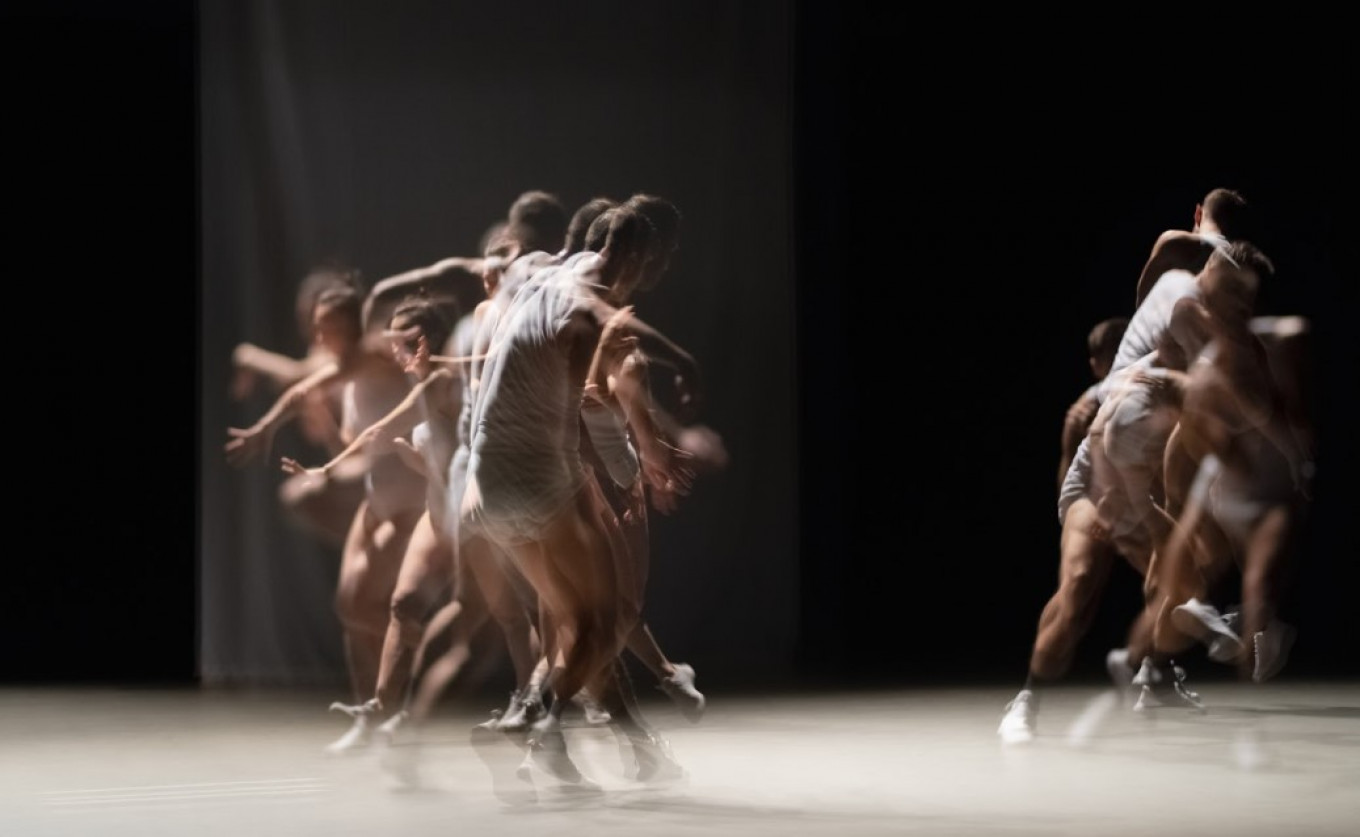
Begin with coronavirus
The festival opens with “FN,” a new production of the acclaimed Estonian contemporary dance company, Fine 5, that is loosely based on personal recollections of the troupe’s member dancers, who reflected on their time spent in isolation during the Covid19 pandemic.
“The pandemic and long period of isolation raised many unanswered questions and doubts – what is the meaning of dance as an art form in today´s ‘new reality’ and what will the future of dance look like?” Renee Nõmmik, the choreographer of “FN,” told The Moscow Times. “During the lockdown I missed things that were normal before the pandemic – looking at live performances, working with people in rehearsal space and creating together. Without these things I still cannot imagine dance as a live art form… The influence of the pandemic and isolation is both personal (psychosomatic) and universal (we have to learn different ways of communication). Many people are now afraid to work in close contact with others. I think we need to find ways to feel trust and security.”
“FN” will be shown in Moscow on Aug. 29 and 30 at the School of Modern Drama Theater, and then in St. Petersburg on Sept. 2 at the New Stage of the Alexandrinsky Theater.
From Estonia to Spain
Another must-see production is Marcos Morau’s “Pasionaria” by the renowned Spanish contemporary dance troupe La Veronal. The new dance is a dark fantasy about what would happen to humanity if gadgets replaced humans, destroying feelings and human expression. “Pasionaria” is rich in references ranging from Andrei Tarkovsky's “Solaris” to Japanese manga. In the musical score, nostalgic sounds of the 1980s lead us into the future.
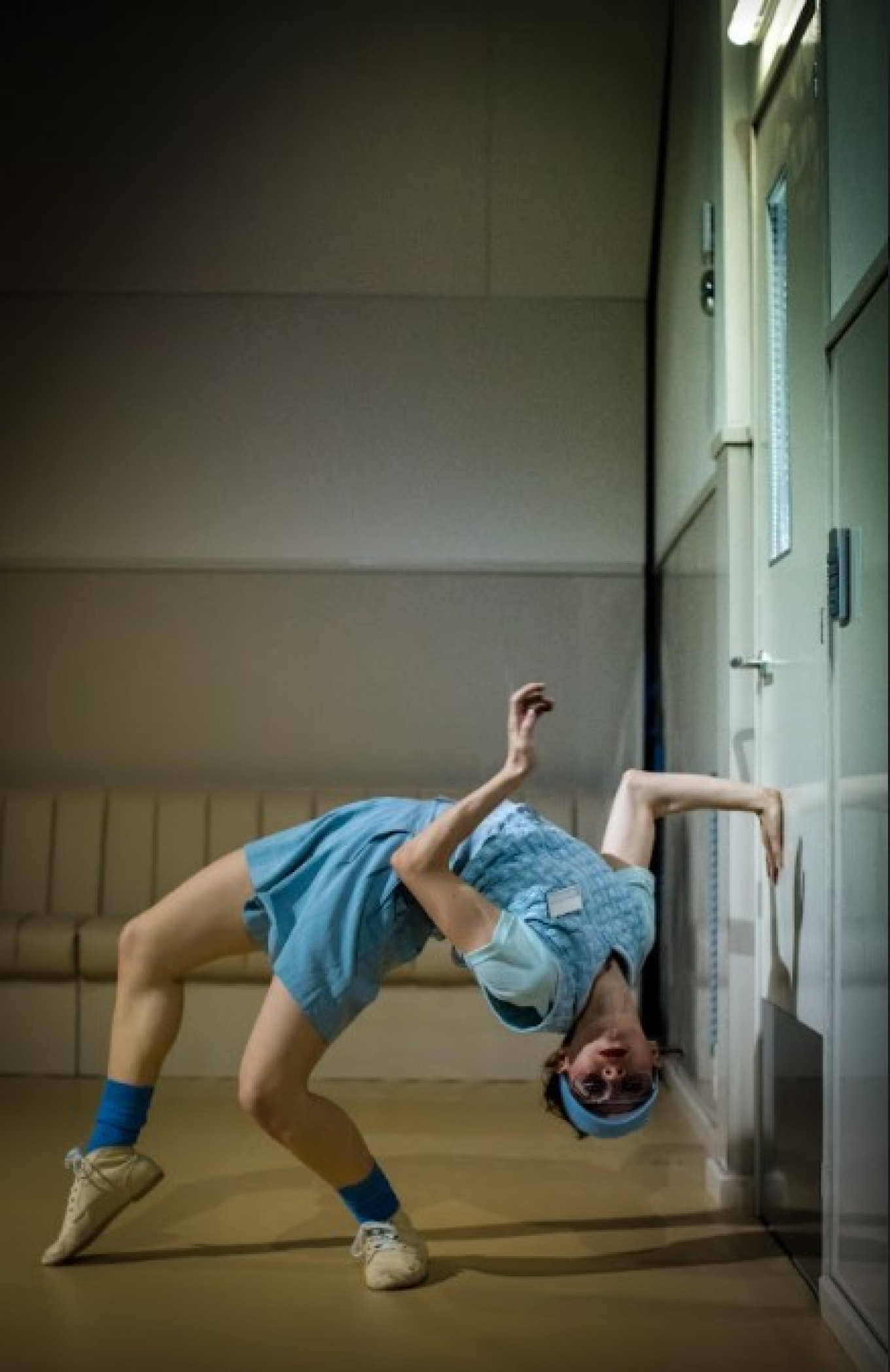
“’Pasionaria’ is an allegory of the future, but the present is actually being questioned,” Morau told The Moscow Times. “In ‘Pasionaria’ everything happens without depth, without emotion. It introduces us to beings similar to us, but they are detached with no emotion or passion, in a society where the collective is always chaos, and the individual is always selfish. Could this be planet Earth? Maybe.”
“Pasionaria” will be performed in Moscow on Aug. 30 and Sept. 1 at the New Opera Theater, and then in St. Petersburg on Sept. 4 at the Baltiisky Dom Theater.
East comes west
“Schaherazade” is a powerful and colorful ballet that tells the extraordinary tale of Farah Pahlavi, the first and last empress of Iran, who now lives in Paris at the age of 82. The show saw its world premiere at Perm Theater and will be shown outside its home venue for the first time during the festival. The Perm ballet company will also show its production of “The Buffoon” on the same evening.
For Vishneva, the dance has echoes of the 1917 Revolution and the history of Russia's last tsar's family. “The irrevocable loss of power, the pain of loneliness in exile, the impossibility of returning to her homeland, the loss of her children (two of whom committed suicide) — Farah endured many trials,” the dancer said.
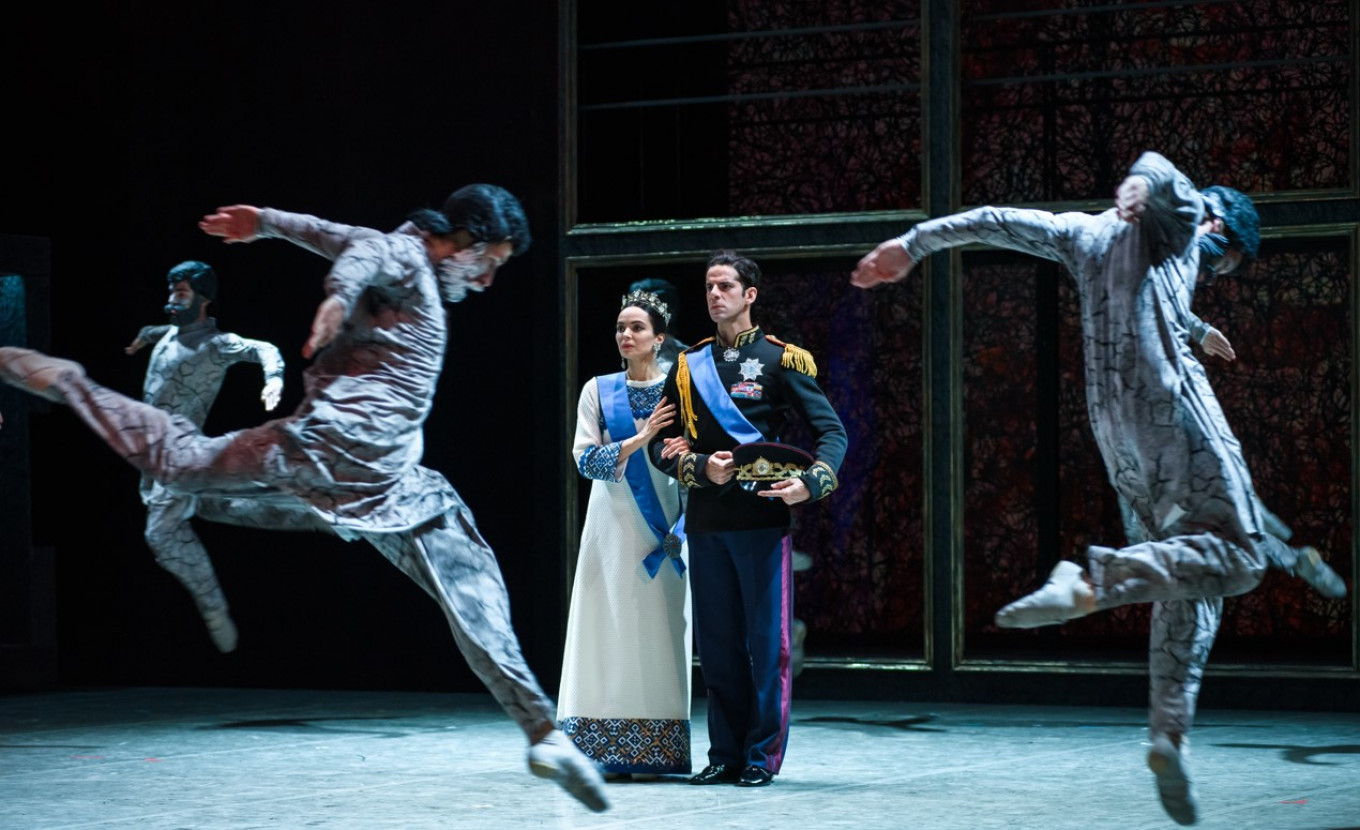
The various scenes from Farah's life in the ballet seem to appear arbitrarily, but they are dramatically integrated into a single plot that intertwines the heroine's memories of her youth, her studies at university, her first meeting with Mohammed, the coronation wedding and the grandiose 1971 parade for the 2,500th anniversary of the Persian Empire.
“The parade scene is spectacular: 70 soldiers march across the stage, repeating the poses and gestures of the bas-reliefs of the frescoes depicting the campaigns of King Darius the Great,” Vishneva said. “And, of course, the ballet also touches upon the tragic events of the Iranian Revolution. We travel through time on the waves of Farah's memory. The choreographer also drew on the Rubiyat of Persian Sufi Hafiz Shirazi, one of the most brilliant poets of the East, which greatly enriched the flavor of the production.”
Alexei Miroshnichenko’s ballet ”Schaherazade” set to Rimsky-Korsakov’s famous score, will premiere on Sept. 3, 4 and 5 in Moscow’s Mossoviet Theater, and Sept. 9 and 10 in Alexandrinsky Theater in St. Petersburg.
Dancing in museums
New spaces are almost as important to Context as new names, because their change in perspective puts dances in a new context. Some of this year's festival performances will take place in the Pushkin State Museum of Fine Arts.
On Aug. 31 and Sept. 1 the museum halls will host “The Paper Man” by Pavel Glukhov. This unorthodox solo production, performed by Vasco Nasonov, suggests looking at human nature as the protagonist of the work of art.

Although Russia’s museums are becoming more open, their halls were not designed as stages, which presents an additional challenge for the performance.
“For a choreographer, an unfamiliar space filled with different meanings is a great opportunity to show their creativity,” Visheva said. “You have to find a new approach, new ways to feel your body and the music in a new space — it's a very creative process. Experiences of this kind turn out to be very interesting, inspiring and demanding. Museum exhibits are inherently static, but here a dance is born and dies before the eyes of the audience, who are a few steps away. It is an amazing experience for both sides, and we will definitely continue exploring new spaces.”
The festival, which includes several programs, master classes and other events, runs through Oct. 4. For more information and complete schedule, visit the site here.
A Message from The Moscow Times:
Dear readers,
We are facing unprecedented challenges. Russia's Prosecutor General's Office has designated The Moscow Times as an "undesirable" organization, criminalizing our work and putting our staff at risk of prosecution. This follows our earlier unjust labeling as a "foreign agent."
These actions are direct attempts to silence independent journalism in Russia. The authorities claim our work "discredits the decisions of the Russian leadership." We see things differently: we strive to provide accurate, unbiased reporting on Russia.
We, the journalists of The Moscow Times, refuse to be silenced. But to continue our work, we need your help.
Your support, no matter how small, makes a world of difference. If you can, please support us monthly starting from just $2. It's quick to set up, and every contribution makes a significant impact.
By supporting The Moscow Times, you're defending open, independent journalism in the face of repression. Thank you for standing with us.
Remind me later.


